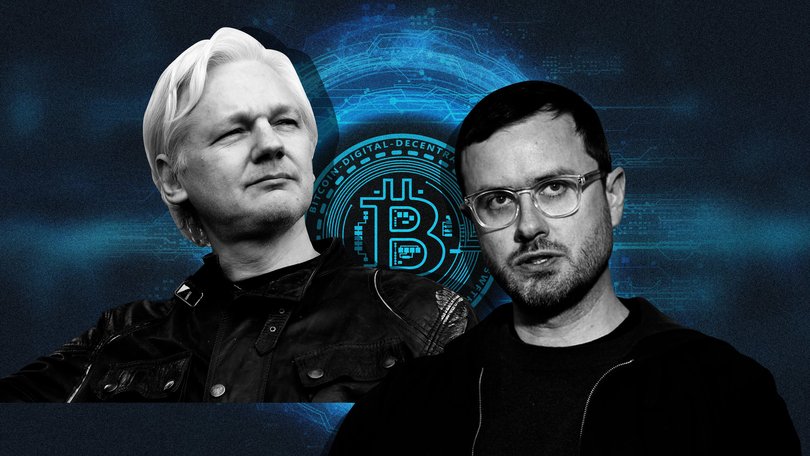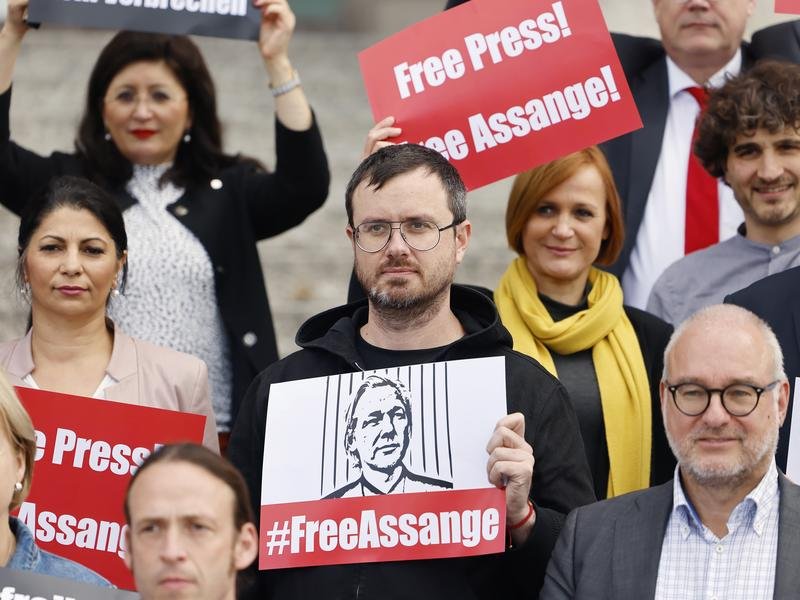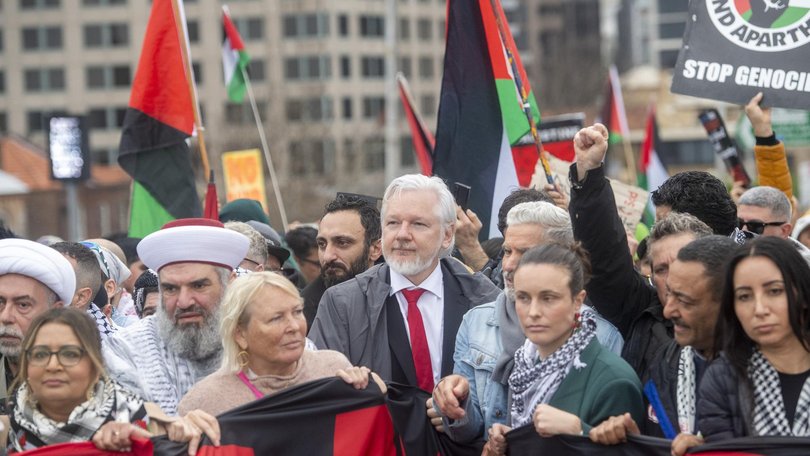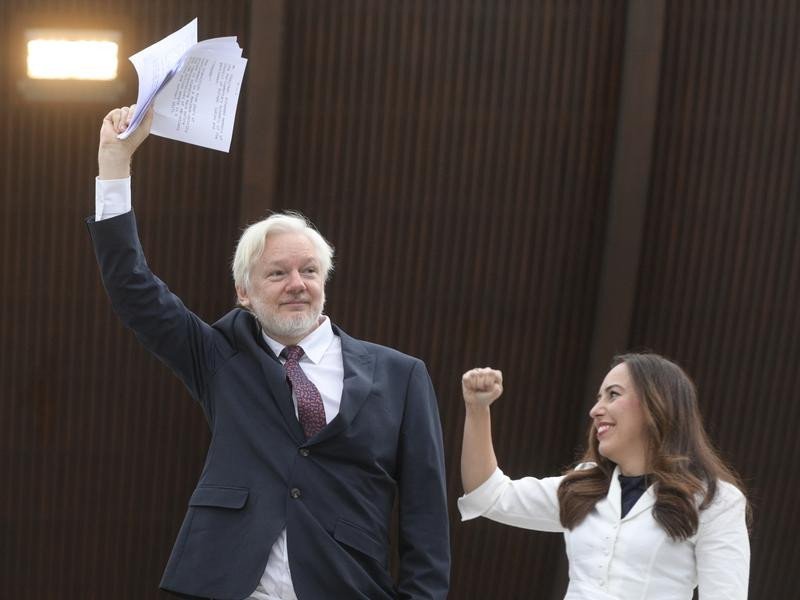Julian Assange’s brother embarks on Bitcoin-WikiLeaks project to memorialise the espionage that shook America
EXCLUSIVE: Julian Assange’s brother is memorialising the famed leaker’s work with a Bitcoin project that allows anyone to claim ownership of the 90,000 leaked documents that shook America

Just over a year since the release of WikiLeaks founder Julian Assange from prison, his brother Gabriel Shipton is helping manage a project that memorialises the 90,000 leaked documents on the Afghanistan war Mr Assange published on the internet.
Known as Project Spartacus, Mr Shipton and members of his brother’s WikiLeaks team have created a website that lets anyone digitally publish the classified Afghan war secrets that led the US Government to charge Mr Assange with espionage.
Project Spartacus encourages Bitcoin enthusiasts to inscribe all 90,000 pieces of wartime intelligence onto the token’s blockchain. About 45,000 documents have already been registered to individuals on the decentralised database using digital tokens.
Sign up to The Nightly's newsletters.
Get the first look at the digital newspaper, curated daily stories and breaking headlines delivered to your inbox.
By continuing you agree to our Terms and Privacy Policy.While the tokens have no legal standing, they are a way for people to demonstrate their support for the man behind one of the biggest leaks of confidential documents in history. Mr Shipton, a key member of the campaign that secured Mr Assange’s release, said his brother supported the project but was not directly involved.
“Julian is supportive of it as a publishing tool,” Mr Shipton told The Nightly.
“Project Spartacus asks the Bitcoin community to stand with Julian and publish the exact info he was convicted and sentenced to five years’ prison for.
“So, it’s this moment of solidarity where bitcoiners stand up and say I’ve done the same thing as Julian. And I’ve published this info in way that will never be taken down and never be censored.”

He denied the project was a way for Mr Assange to become an online activist again, a step that would likely upset the US Government.
“No, Julian’s not involved in it, I’ve not really checked in with him about it,” Mr Shipton said. “But it’s a way for people to show their solidarity with Julian and it’s inspired by him and part of his legacy. A lot of people are inspired by what he did. You know the use of Bitcoin technology is coming at a time when things are disappearing off the internet more and more.”
Mr Assange declined to comment for the story, but remains a lightning rod for debate around freedom of the press, censorship and the interests of national security. The activist’s last public appearance was at a pro-Palestine march across Sydney Harbour Bridge on August 3.

Bitcoin founder
Mr Assange was allowed to return to Australia in June 2024 as part of a legal deal with the US Government that saw him convicted of espionage offences, but effectively freed on account of five years’ jail served in the UK. He also spent seven years confined to the Ecuadorian embassy in London.

The US Government alleged Mr Assange received approximately 90,000 Afghanistan war-related activity reports, 400,000 Iraq war-related activities reports, 800 Guantanamo Bay detainee assessment briefs, and 250,000 US Department of State cables.
The Afghan War Logs were leaked in 2010 by US army analyst Chelsea Manning and published by WikiLeaks.
Since its inception in 2009, Bitcoin has become a popular currency unregulated by central banks or governments. With a market value of more than $3.4 trillion, it is the world’s largest cryptocurrency.
At the time of WikiLeaks’ first big data leak on the US wars in Afghanistan and Iraq in 2010, Mr Assange, as a prodigious computer hacker, was in regular online contact with anonymous Bitcoin founder Satoshi Nakamoto, according to Mr Shipton.
“Satoshi [Nakamoto] initially told Julian Bitcoin wasn’t ready for WikiLeaks (in 2010),” Mr Shipton said. “Satoshi’s most famous post is that ‘Wikileaks has kicked the hornet’s nest and the swarm is headed towards us’. So, they (Wikileaks) waited six months before they started accepting donations in Bitcoin.”
WikiLeaks had little alternative than to turn to Bitcoin for funding in 2011 as the US Government pressured payments companies and major banks to halt the investigative website’s connection to the monetary system in 2010, according to Mr Shipton.
Mr Assange was also de-banked himself in 2010. This meant he was unable to make or receive payments for everyday transactions and regularly received donations in Bitcoin to help fund multiple costly legal battles relating to his defence up until his final release in 2024.
Mr Shipton suggested Queensland-based Mr Assange is now focused on how technologies linked to advances in artificial intelligence may change communication platforms. “He’s still very interested in protocol-backed communication technology and how AI will change that landscape,” he said.

